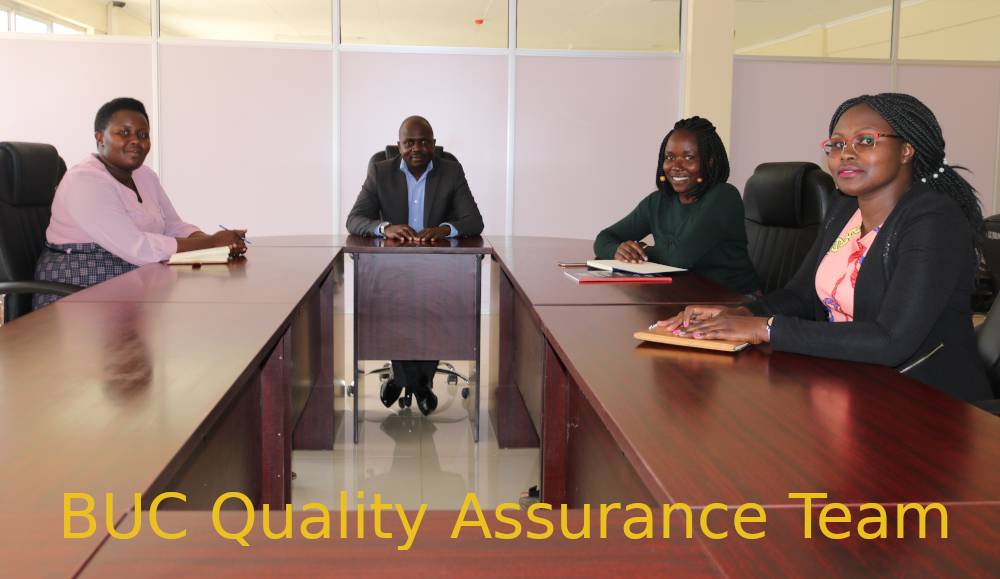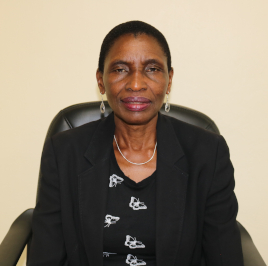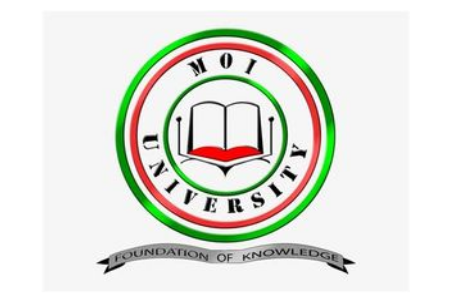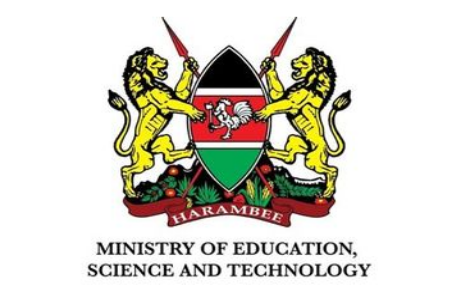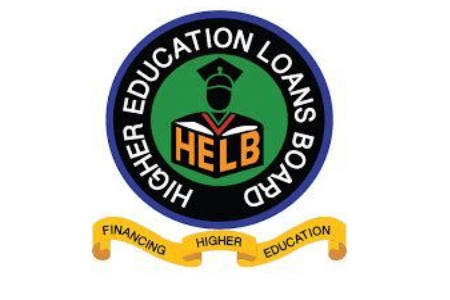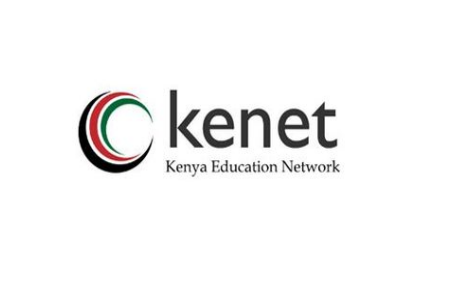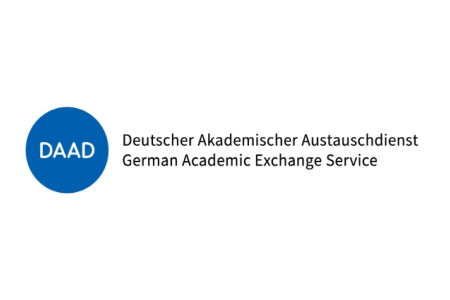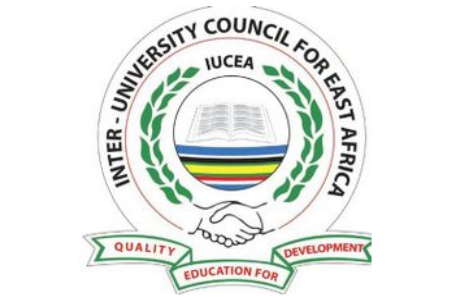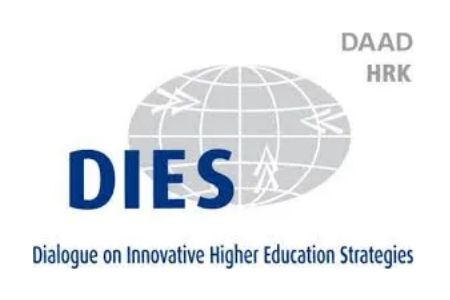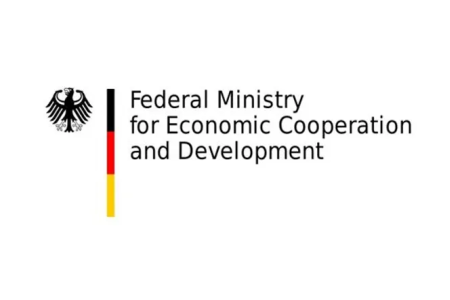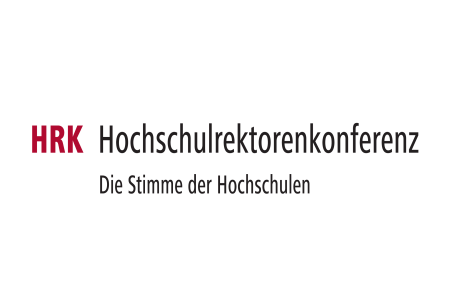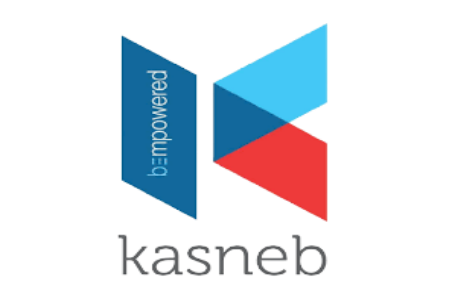Warning: Creating default object from empty value in /home/buc.ac.ke/public_html/components/com_k2/views/itemlist/view.html.php on line 743
Uncategorised (43)
QUALITY ASSURANCE AND STANDARDS AT BOMET UNIVERSITY COLLEGE.
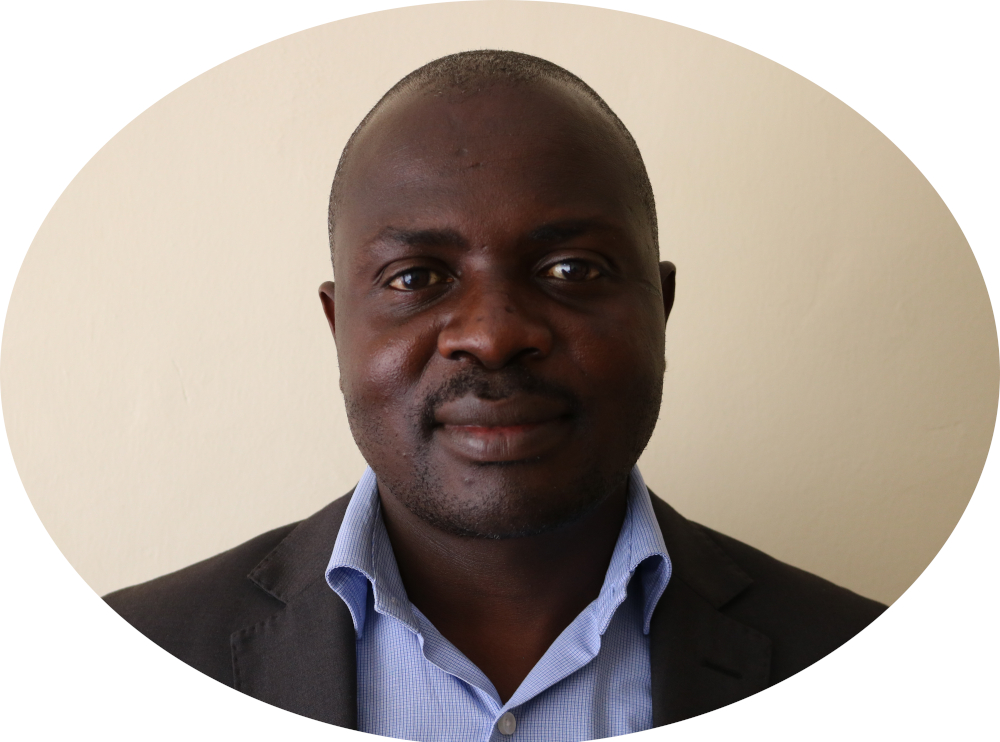
Coordinator, Dr. Wayong’o John W.
Robust quality assurance mechanisms and processes are essential to achieve Bomet University College core mandate. Quality remains a hallmark of BUC core mandate. It is an essential basic requirement which guides BUC employees in their work so that teaching, learning, training, research and innovations as well as other administrative functions meet international standards. The work mechanisms and processes should be as efficient as possible and continually improving. BUC employees constitute the most important resource for improving quality. Each employee at BUC is responsible for ensuring that their work processes are efficient and continually improving.
BUC top management understands the value of quality assurance in the institution. The management always works to ensure that quality is enhanced at all times. They do this by providing training and induction on quality assurance to foster collectiveness both within and across its units for employees to improve processes. The quality assurance unit takes a lot of pride in BUC’s top management vast knowledge and experience in matters quality. Bomet University College staff is trained and inducted regularly on quality assurance processes and mechanisms by the Principal and the two Deputy Principals. This has kept BUC staff abreast with the latest practices in quality assurance.
Therefore, it is everyone’s responsibility to continuously strive for improvement at BUC.
At Bomet University College, Quality Assurance Unit monitors its quality processes and mechanisms by:
• Developing and documenting a quality policy and quality vision, mission and objectives and ensuring that they are understood and implemented by all employees at all levels;
• Ensuring that appropriate processes are initiated and implemented to fully enhance BUC core mandate;
• Establishing internal inspection and audit in accordance with Commission for University Guidelines 2014; The constitution of Kenya 2010, The Universities Act 2012, revised 2016, the Big Four Agenda, AU Vision 2063 and the UN goals for sustainable development;
• Implementing recommendations made by Commission for University Education and other external bodies whenever they carry out an inspection at BUC.
• Providing adequate resources for implementing and maintaining the quality mechanisms and processes;
• Conducting scheduled reviews of the quality assurance mechanisms and processes to assess their continued suitability, adequacy, effectiveness and efficiency; and
• Deciding on actions for continual quality improvement.
The quality assurance unit at BUC is manned by dedicated and adequately qualified and trained personnel with well-developed interpersonal skills. The well-developed interpersonal skills provide the quality assurance personnel with persuasive, diplomatic, tactful and resilient qualities generally required of them. The unit operates independently from the operational units and it regularly performs quality review activities (self-inspection audits/internal audits) to ensure compliance within operational units with The Constitution of Kenya 2010 and Commission for University Education guidelines 2014, quality standards.
The Quality Assurance Unit, in liaison with BUC Academic and Administrative divisions ensures the following:
• Determine, develop, review continuously and implement appropriate quality documents (BUC policies including quality policy and BUC Strategic plan; BUC Five Year Master Plan and Mater Timetable).
• All BUC staff remains, properly qualified and trained for job roles for which they are made responsible. This has been achieved through training like new staff induction, ongoing quality awareness training on current global activities and other quality documents, training for changing roles within and between functional units, stakeholders engagement and training resulting from an analysis of needs including the results of audits and regulatory inspections, top management reviews and employee appraisals.
• All BUC activities and operations comply with laid down quality standards locally, nationally, regionally and internationally, ethically and regulatory requirements to achieve its core mandate.
• To maintain up-to-date data on effective quality documents.
• BUC employees have job descriptions which clearly define their roles and responsibilities.
• To maintain a personal file on each employee, containing his/her current curriculum vitae, job description, education and training records and personal and professional development plan.
• Create an auditing function, independent of the operational units and the quality control unit, to plan, conduct, and report internal and external audits and to support and monitor appropriate corrective actions and preventive actions.
• A mechanism is put in place to address customer complaints and compliments through the Public relations office, regulatory inspections as a blue print for accreditation and charter.
• Maintain a link with functional units, affiliates, and human resources for continued personal and professional development of employees.
• Through the Career guidance and Academic Advisory Unit, a link is established to make follow ups and tracer studies for BUC alumni whose feedback will be incorporated in BUC policy formation and reviews.
• Maintained a link with and between functional units and affiliates to promote standardization, improve communication, and to enhance efficiency of quality mechanisms and processes through cooperation.
• All BUC functional units are kept up-to-date with various established and emerging local, national, regional and international legal, ethical and regulatory standards.
• Continual quality improvement through internal and external benchmarking.
In conclusion, quality assurance processes and mechanisms are anchored on compliance with legal and statutory requirements. It is my view that the best practice in quality is to always seek to comply fully and do as required. After you have done it and you are asked how else you would done to your best. The answer is that is your best.
Thank you.
THE NEED FOR QUALITY ASSURANCE AT BOMET UNIVERSITY COLLEGE
Quality assurance is becoming more and more pivotal in the Academic and Administrative domains of Higher Education. Bomet University College recognizes the importance of Quality Assurance and Standards in all its activities as manifested in the dedicated Quality Assurance and Data Management Unit. The globalization and internationalization of BUC’s vision, mission, niche and philosophy, has warranted the creation and recognition of Quality Assurance and Data Management systems in the University College to enhance both academic and administrative processes. Key concepts such as accreditation, value for money, institution relevance, standards and recognition are paramount to the University College’s core mandate of Teaching and Training, Research, Outreach and extension and Innovation. The Unit, core to the University College, is also responsible for designing and implementation of new Quality Assurance processes and mechanisms to enable students receive high quality education, relevant to the changing times so that they can be recognized globally.
In accordance with Article 11 of the World Declaration on higher education, quality in higher education should embrace all the research and scholarship, facilities, students, building, staffing, equipment, community services, teaching and academic programmes, functions and activities. Quality assurance can be a driver for institutions to achieve excellence in higher education. It is against this background that Bomet University College is focused on providing Quality Assurance mechanisms and processes as a requirement by the Constitution of Kenya 2010, Universities Act 2012, Universities’ Regulations 2014 and Commission for University Education Guidelines 2014. Quality Assurance Unit at Bomet University College takes cognizant of the fact that compliance with the aforementioned guidelines is an assurance of improvement of its academic and administrative activities. Among other key functions, Quality Assurance Unit at BUC Assurance is a unit that has been established for the purpose of achieving continuous improvement in BUC’s activities and structures. It ensures the quality of the academic (teaching and curriculum) and structural (buildings and computers) provision of courses and allows objective review of their quality. The Quality Processes are always transparent. This transparency is dialectical thus ensuring that the institution remains transparent. The quality assurance in itself is transparent in its processes of ensuring quality. The outcome of its processes is always shared by the participants.
Bomet University College Library Services
Official Library Opening & Operating Hours:
• Monday – Friday :- 8:00 a.m – 10:00 p.m
• Saturdays :- 9:00 a.m – 5:00 p.m.
• Sundays : – 1:00 p.m – 5:00 p.m.
Library services
• Circulation services – these include lending and return of information materials
• Reference and referral services
• Bibliographic services
• Electronic services – the library subscribes e-books and e-journals.
• Photocopying services
• Internet services
• User registration and clearance.
Subscribed E-Resources
Cambridge Journals
Subject Strengths: Politics, Linguistics, Social Science, Humanities, Law, Mathematics, Science, and Medicine
Subject Strengths: Economics, Education, Humanities, Law, Life and Physical Sciences, Social Sciences
The databases provide access to just over 16,500 abstracted and indexed journals from all branches of science, technology, medicine, social sciences and humanities.
Management and library & information services journals. The service also provides access to leading titles in marketing, business disciplines, engineering and materials science.
This database contains articles on: Current Events, Economics, Education, History, Humanities, Literature and Art, Political Science, Psychology, Religion, Sociology, and more.
Economics, History, Political science, Archeology, African Studies, Music, Art & Art History, Business, Ecology & Botany, Language & Literature, Mathematics & Statistics
Subject strengths:
Articles, Bills, Case Search, Cause List, Legal Notices, Newsletters and many more
Biological Sciences, Medicine, Public Health and Epidemiology, Humanities, Social Sciences, Law, Economics, Business and Finance, Mathematics, Statistics, Computing and Physics
Area and Ethnic Studies, Art and Architecture, Creative Writing, Education, Film, Theater, and Performing Arts, History, Language and Linguistics, Library Science and Publishing, Literature, Medicine and Health, Music, Philosophy, Religion, Science, Technology, and Mathematics, Social Sciences, Studies by Time Period Women’s Studies, Gender, and Sexuality
Subject Strengths: Humanities, Social Sciences, Scientific, Technical and Medical
Information Science, Interdisciplinary Studies, Language & Literature, Law, Mathematics & Statistics, Medicine, Dentistry, Nursing & Allied Health, Museum, Heritage Studies & Visual Arts, Physical Sciences, Reference & Information Science, Social Sciences, Social Work, Sports, Leisure, Travel & Tourism and Urban Studies
Business, Chemistry, Computer Science, Earth and Environmental Science, Education Engineering, Law Life Sciences, Mathematics and Statistics, Medicine and Healthcare, Physics and Astronomy, Polymers and Materials Science, Psychology, Social Sciences
Education; Natural Sciences; Social & Human Sciences; Cultural Sciences; Communication & Information; Climate Change; Biodiversity Initiative; Culture of Peace & Non-Violence; Dialogue among Civilizations; Education for Sustainable development; Foresight and Anticipation; Gender Equality; HIV and AIDS; ICT in Education; Africa Least Developed Countries; Post-Conflict and Post-Disaster Responses; Science Education; Small Island Developing States Youth.
Online Books
Anthropology, Business & Economics, Computers & IT, Education, Fine Arts, History, Language & Literature, Law, Life Sciences, Medicine ,Physical Sciences, Psychology, Religion, Social Sciences and Technology.
Open Access Databases
Directory of Open Access Journals (DOAJ).
Free, full text, quality controlled scientific and scholarly journals, covering all subjects and many languages.
Subject strengths: Agriculture & Rural Development, Health, Aid Effectiveness, Infrastructure, Climate Change, Labor & Social Protection, Economic Policy & External Debt, Poverty, Education, Private Sector, Energy & Mining, Public Sector, Environment, Science & Technology, Financial Sector, Social Development, Gender; and Urban Development.
East and Central Africa (EAC) Documents and Publications.
The links provides access to Documents and Publications generated within EAC.
This site makes public government data accessible to the people of Kenya. High quality national census data, government expenditure, parliamentary proceedings and public service locations are just a taste of what’s to come. The information here is key to improving transparency, unlocking social and economic value, and building Government in Kenya.
Publications by the Kenya Institute for Public Policy Research and Analysis (KIPPRA).
Message from The Principal
Prof. Anne K. Nangulu
It is a great honour for me to be a part of the Bomet University College (BUC) family as its Principal. I take this opportunity of welcoming you all to the BUC’s Website, to also thank you for your interest in this University College, which is a Constituent College of Moi University.
The University College is anchored on its Niche “Green Economy for Sustainability’’; and Motto: “Green University for Sustainability’’
Here, a platform has been provided to enable us interact with you and get to know us as a “Green University for Sustainability’’. In BUC, there are undergraduate as well as postgraduate Academic Programmes offered in four (4) Schools namely; School of Arts and Social Sciences; School of Pure and Applied Sciences; School of Business and Entrepreneurship; and School of Education.
Allow me if you may, to invite you virtually on BUC Website to the respective Schools for detailed information on Academic Programmes; Research Activities; Extension and Outreach. Through Virtual Tour, it will be possible for you to learn about BUC’s Academic and Administrative Staff.
As you will also easily learn, BUC has intentionally created a family of Students and Staff from all over the country, regionally and globally. This means that we have no hesitations while inviting you to join the BUC Community in any ways and capacities, towards attainment of our Institutional Niche; “Green Economy for Sustainability”.
Bomet University College Students and Staff have moved away from their foundational families, in their quest of furthering University Education and Knowledge. We have accordingly put up systems and mechanisms that ensure the comfort of Students, Staff and other Stakeholders at all times, and one needs to feel that they are just moving away from one family context into another.
For the Students in particular, their Peers, Academic and Research Leaders, all form an extended family from whom they can look up to for any guidance, support and help, as they pursue their various career paths towards shaping their lives into professions of their choice.
Undoubtedly, BUC as an institution of Higher Learning has a rich and relatively clear record of achievements. I urge you to take a tour of our Website so that you get a feel of who we are. Just to re-iterate, the University College has highly qualified Academic and Administrative Staff in their respective fields of expertise.
Further, BUC has a robust team that manages various aspects of Student Affairs, which is pivotal to our uniqueness and success. The BUC community therefore provides a variety of experiences that inculcate skills such as leadership and the glocal spirit, which are helpful in the current dynamic world.
Not in any way to demean our other achievements, it is important to mention that the University College has put in place up-to-date ICT infra-structure that enables Blended Learning even in the face of the Coronavirus (COVID-19) Global Pandemic.
As Management of BUC, we are currently empowering Staff and Students to make use of all e-Resources from our Library, and in support of Institutional Niche: Green Economy for Sustainability; there are several endeavours to have e-connections; partnerships and collaborations for most of BUC activities. In this e-Environment, BUC has a Functional Enterprise Resource Planning (ERP) system and further enhances our spirit of making our environment Green.
The already implied serenity of BUC, along with relevant Academic curricula; co-curricular and extra-curricular activities obviously shapes the Intellectual, physical and mental growth of our Students and Staff.
Therefore, I seize this chance to assure you, on behalf of the BUC family that we will be of great assistance to you to pursue your objectives of life under the varied social, cultural, economic, safe and secure environment; and make the University family proud of your success and achievements.
Academic Affairs
1. Vision
Centre for quality, effective, timely and efficient service delivery that contributes to the achievement of goals and mandate of Bomet University College.
2. Mission
To offer quality, effective, timely and efficient Service which contributes to the achievement of goals and mandate of Bomet University College.
3. Sections in the Office of Registrar (Academic Affairs)
The office of Registrar (Academic Affairs) deals with matters relating to Academic Affairs within the University College. The office coordinates the functions of three sections namely: Admissions and Students Registry, Examinations Section and the Programmes Section.
The Admissions Section deals with students’ admission, management of students’ records and preparation of students’ statistics. The Examinations section deals with coordination of University College examinations and processing of the students transcripts, while the Programmes Section deals with programmes.
4. Functions of the Office of Registrar (Academic Affairs)
The following are the key functions of Office of Registrar (Academic Affairs):
1. Implementation of the University College policies and procedures
2. Management of students’ records
3. Marketing of Academic Programmes offered in the University College
4. Processing of Applications for admission into the University College
5. Admission of students who meet minimum requirements for admission into Academic Programmes of the University College
6. Registration and orientation of new students
7. Processing of requests from students who wish to defer their studies based on satisfactory reasons
8. Co-ordination of University examinations and processing of results
9. Enforcement of Examination Rules and Regulations
10. Provision of secretariat services to the University College Academic Board, Deans Committee etc.
Legal Department
Legal Unit
The Legal Unit has been established under the Office of the Principal to handle all Legal Matters pertaining to litigation, commercial, conveyance, contracts and memoranda of understanding/agreement from time to time as the University College may deem fit. This is in line with the government directive to public entities regarding handling of legal matters.
The Unit in its mandate is guided by relevant statutory provisions including:
1) The Constitution of Kenya, 2010
2) The Universities Act No 42, 2012 (Revised 2016)
3) The Legal Notice No.145 of 27th July 2017
4) The BUC Master Plan 2018 to 2068
5) Mwongozo Code of Governance
6) The Advocates Act CAP16 (Revised Edition (1989))
7) The Advocates Remuneration Order (Amendment) Order 2014)
8) The Employment Act CAP 226 (Rev. 2010)
9) Public Procurement and Asset Disposals Act, 2015
10) Civil Procedure Act CAP. 21 (Revised 2012(2010))
11) The Industrial Property Act No.3 of 2001
12) Tax Procedures Act No. 29 of 2010
13) The Land Act No.6 of 2012
14) Government Circulars to Institutions
15) Internal Policies and Circulars
The University College had so been working with outsourced legal services during the last Commission of Universities Technical Inspection. The Legal Unit has been on boarded and is currently under the transition phase to attend to all the previous, ongoing and future legal related matters.
The Legal Unit has a mandate to:
1) Act as an Advisory Unit to the University College on legal related matters.
2) Litigate and resort to Alternative Dispute Resolution on matters/disputes pertaining the University College.
3) Handle matters of corporate governance, contractual, Agreements with internal and external persons and conveyance with regards to the University College.
4) Carry out Legal Practice Management under the Legal Unit of Bomet University College.
Internal Audit
Internal Audit Quality Assurance Mechanism
Internal Audit Department was established in August 2018 following the recruitment of an Internal Auditor. The Department has put in place the governing documents including Charters, Work Plans and Policies. The Head of Internal Audit reports functionally to the Audit & Compliance Committee of Council and administratively to the Principal.
i. Vision
To be a preferred advisor unit in partnership with stakeholders delivering professional assurance and consulting services to assist the University College to achieve its mission, strategic planning goals and initiatives in an atmosphere of respect and accountability.
ii. Mission
To enhance and protect institutional value by providing risk-based and objective assurance, advice and Insight.
iii. Core Values
The Core values of Internal Audit are: Integrity, Objectivity, professionalism, competence and Confidentiality.
1. Roles and Functions of Internal Audit
Internal Audit at BUC is a control tool that helps in the accomplishment of the University’s objective by establishing systematic and disciplined approach to evaluate and improve the effectiveness of Risk Management, Controls and Governance Process.
The roles and functions of Internal audit include bringing systematic and disciplined approach to evaluate and improve the effectiveness of;
a. Review and evaluate budgetary performance, financial management, transparency and accountability mechanisms and processes in the University College;
b. Have a duty to give reasonable assurance through the Audit and Compliance Committee on the state of risk management, control and governance within the organization
c. Review the effectiveness of the financial and non-financial performance management systems of the University College
d. Review Compliance to laws and Policies.
e. Review the adequacy of the safety and custody of the Institutional assets.
2. Internal Audit Governing Documents
Internal Audit operations are governed by internal and external instruments.
i. Key Legal Instruments –External includes;
1) Constitution of Kenya,2010
2) International Professional Practices Framework(IPPF)
3) Public Financial Management Act,2012
4) Public Finance Management Regulations,2015
5) Mwongozo Code of Governance in Public sector
6) Audit Committee Guidelines Gazette Notice Vol.CXVIII-NO.40
7) Government Policies and Circulars
ii. Key Documents-Internal includes;
1) Internal Audit Charter
2) Audit Committee Charter
3) Internal Policies
4) Internal Audit Manual
5) Internal Audit Risk Based Work Plan
6) Risk Based Audit Procedure manual.
3. Scope of Internal Audit
Internal audit coverage may be extended to all areas of the University College and may include; financial, administrative, academic and other operational activities. The extent and frequency of audit depends on various circumstances such as relative risks associated with the activity, results of previous audit, materiality and adequacy of internal control systems that are in place.
At the beginning of every Financial Year, a flexible Risk-Based Audit Work Plan is prepared to guide the deployment of the limited resources to high risk areas within the institution.
4. Reporting
The Head of Internal Audit is responsible for coordinating internal audit activities in the University College. The Head of Internal Audit reports administratively to the Principal and functionally to the Audit and Compliance Committee of the Council.

